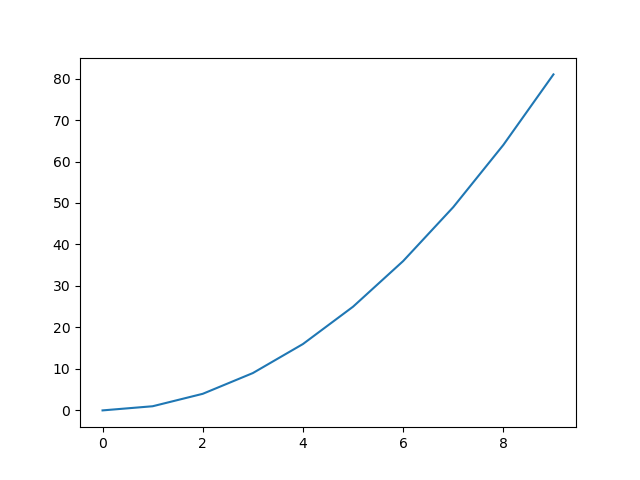Previous Common Lisp attempts: burgled-batteries3
Non Common Lisp approaches
- see this reddit thread for PyFFI in racket, as well as Gambit Scheme
- PyCall in Julia
CL-USER> (ql:quickload "py4cl2-cffi/config")
To load "py4cl2-cffi/config":
Load 1 ASDF system:
py4cl2-cffi/config
; Loading "py4cl2-cffi/config"
[package py4cl2-cffi/config]
("py4cl2-cffi/config")Set the various configuration parameters in the package py4cl2/cffi-config (optionally, first start the lisp process in the virtual environment and then set the configuration parameters):
*python-additional-libraries**python-additional-libraries-search-path**python-include-path**python-shared-object-path*
One can use the python3-config or equivalent to find these parameters. (See ../.github/workflows/CI-cffi.yml For instance, the following lisp command sets the parameters to their appropriate values on the author's PC using a miniconda environment:
PY4CL2/CFFI-CONFIG> (setq *python-shared-object-path* #P"/home/user/miniconda3/lib/libpython3.8.so"
*python-include-path* #P"/home/user/miniconda3/include/python3.8/"
*python-additional-libraries-search-path* #P"/home/user/miniconda3/lib/")
#P"/home/user/miniconda3/lib/"- garbage collection touches
- An effort has been made to keep a track of reference counts; but if something is missed, and users notice a memory leak, feel free to raise an issue!
- trivial-garbage:finalize is used to establish the decref process for the pointer corresponding to the pyobject. However, this requires holding the GIL, and so, the user might need to evaluate
(py4cl2-cffi::pygil-release)at the top level to release the GIL of the current thread, so that the finalizer thread can then acquire it.
- function return-values
- function arguments
- integers
- strings with SBCL/Unicode
- tuples
- lists
- dicts
- double floats
- numpy arrays to CL arrays
- output (partially)
- error output (partially)
- python variable values
- object slots
- methods
- python stdout to lisp stdout (asynchronous, make sure to
sys.stdout.flush()) -
with-python-output - lisp callbacks
- numpy arrays to non-CL arrays
- arbitrary module import
- numpy floats
- optimizing pythonizers and lispifiers using static-dispatch
... and much more ...
Goals are less ambitious than burgled-batteries. We aim to get "most" libraries working, with a special focus on functional python.
- Only specialized arrays can be passed by reference. Other values will be passed by value.
- The goal is getting the functional aspects of python - those python functions that do not modify their inputs should "work". Non-functional python functions can only work with arrays. Other functions that modify their inputs will not work.
Tested only on Ubuntu 20.04 (CI) and Ubuntu 18.04 (personal machine). Porting to Windows does not look trivial, but someone could prove me wrong (at least provide some pointers!).
py4cl2 has gotten the work done for the past few years. But it has the overhead of (i) stream-based inter-process-communication (ii) eval. That's as worse as one could get.
However, when capable, the CFFI approach can be a 50 times faster than py4cl2.
CL-USER> (py4cl2-cffi:raw-pyexec "def foo(): return str(1)")
0
CL-USER> (time (dotimes (i 10000)
(py4cl2-cffi:pycall "foo")))
Evaluation took:
0.080 seconds of real time
0.079740 seconds of total run time (0.079740 user, 0.000000 system)
100.00% CPU
174,443,654 processor cycles
3,045,440 bytes consed
NIL
CL-USER> (py4cl2:raw-pyexec "def foo(): return str(1)")
; No value
CL-USER> (time (dotimes (i 10000)
(py4cl2:pycall "foo")))
Evaluation took:
1.051 seconds of real time
0.482699 seconds of total run time (0.304186 user, 0.178513 system)
45.96% CPU
20,000 forms interpreted
2,327,364,348 processor cycles
5,760,832 bytes consed
NILPY4CL2-CFFI> (ql:quickload "array-operations")
To load "array-operations":
Load 1 ASDF system:
array-operations
; Loading "array-operations"
("array-operations")
PY4CL2-CFFI> (let ((a (aops:rand* 'single-float 10))
(b (aops:rand* 'single-float 10)))
(print a)
(print b)
(sb-sys:with-pinned-objects (a b)
(pycall "numpy.add" a b :out a))
a)
#(0.5093733 0.615062 0.5520501 0.4115485 0.35940528 0.0056368113 0.31019592
0.4214077 0.32522345 0.2879219)
#(0.23799527 0.9120656 0.99672806 0.54783416 0.91948783 0.14750922 0.68077135
0.75351477 0.17053545 0.6163509)
#(0.7473686 1.5271276 1.5487782 0.95938265 1.2788931 0.15314603 0.9909673
1.1749225 0.4957589 0.9042728)
PY4CL2-CFFI> (let ((a (aops:rand* 'double-float '(3 3))))
(print a)
(sb-sys:with-pinned-objects (a)
(pycall "numpy.linalg.svd" a)))
#2A((0.8441753387451172d0 0.3109557628631592d0 0.34773027896881104d0)
(0.3423733711242676d0 0.6038261651992798d0 0.41209208965301514d0)
(0.5945597887039185d0 0.06366562843322754d0 0.6331008672714233d0))
(#2A((-0.6544319939294636d0 0.16762183299479871d0 -0.7373070503019551d0)
(-0.49635147614988473d0 -0.8308400431254119d0 0.2516744620798731d0)
(-0.5703980868177386d0 0.5306672628331492d0 0.6269276503009229d0))
#(1.4307829399574157d0 0.45313956971575653d0 0.296282569712987d0)
#2A((-0.7419215134897116d0 -0.37708316610163206d0 -0.5544012569104664d0)
(0.380805690816161d0 -0.917542287614819d0 0.11446910622779849d0)
(-0.5518509705193625d0 -0.12619206108679556d0 0.8243397782804759d0)))PY4CL2-CFFI> (raw-pyexec "def foo(fn, *args, **kwargs): return fn(*args, **kwargs)")
; No value
PY4CL2-CFFI> (pycall "foo" (lambda (d e &rest args &key a b &allow-other-keys)
(declare (ignore a b))
(list* d e args))
8 9 :a 2 :b 3 :d 5)
(8 9 "d" 5 "b" 3 "a" 2)PY4CL2-CFFI> (import-module "matplotlib.pyplot" :as "plt")
T
PY4CL2-CFFI> (pycall "plt.plot"
(iota 10)
(mapcar (lambda (x) (* x x))
(iota 10)))
#(#<PYTHON-OBJECT :type <class 'matplotlib.lines.Line2D'>
Line2D(_line0)
{1006670F83}>)
PY4CL2-CFFI> (pycall "plt.show")
#<PYTHON-OBJECT :type <class 'NoneType'>
None
{1006672273}>PY4CL2-CFFI> (defpymodule "numpy" t :silent t)
T
PY4CL2-CFFI> (numpy.random:random '(2 3 4))
#3A(((0.9556724994386294d0 0.9207667929741092d0 0.38080996781642207d0
0.36058417847643864d0)
(0.1939761803809288d0 0.052707969761970785d0 0.5641774015926598d0
0.34218703751890367d0)
(0.663085466238284d0 0.8208948328437302d0 0.768715035806218d0
0.8225795094037658d0))
((0.9523448513613038d0 0.8293149376922084d0 0.6616993552816121d0
0.560839589292125d0)
(0.004265522613073891d0 0.8874616779694773d0 0.45500882951834853d0
0.34081255137211874d0)
(0.3041085477740366d0 0.4351811902627044d0 0.031589664841209175d0
0.6375274178283377d0)))
PY4CL2-CFFI> (numpy:sum * :axis '(0 2))
#(5.622032172332849d0 2.8405971707274817d0 4.483681664998286d0)
PY4CL2-CFFI> (with-lispifiers ((array (lambda (o)
(magicl:from-array o (array-dimensions o)))))
(numpy.random:random '(3 4)))
#<MAGICL:MATRIX/DOUBLE-FLOAT (3x4):
0.814 0.278 0.330 0.782
0.858 0.342 0.282 0.225
0.806 0.144 0.543 0.215>If you are working with raw pointers, then all bets are off about handling garbage collection.
Thus, the only time garbage collection should "work correctly" aka - without (i) segmentation faults (ii) memory leaks - is when you are not working with raw pointers. In other words, functions that return lisp values must perform garbage collection.
An exhaustive list of functions that return lisp values include:
- pyvalue
- pyslot-value
- pymethod
- pycall
- pyhelp
- pyslot-list
- pymethod-list
Even amongst these, GC should not take place until the top level call has done its processing. To be more intrincate seems to require a merge of the python interpreter with the lisp interpreter.
The single place which decides what to not collect is the function "lispify" when it returns a python-object struct-wrapper around the pyobject. In these cases, we PYUNTRACK the pointers.
During DecRef-ing through an object finalizer, one needs to hold the GIL, because at least on SBCL, the finalizer may be called through any thread. DecRef-ing without holding the GIL results in segmentation faults.
